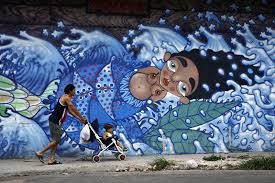On Dec. 17 of last year, President Obama announced that the United States would be restoring full diplomatic relations with Cuba and opening an embassy in Havana, ending nearly 54 years of stalemate between the two countries.
The aim of this radical policy change, the president said, is to “cut loose the shackles of the past” and “unleash the potential of 11 million Cubans.”
Next week, Fordham University will host a panel discussion exploring the impact that the normalization of U.S.-Cuba relations will have on the empowerment of Cubans and on our humanitarian assistance to the island.
 “Empowerment, Humanitarian Aid, and the Normalization of U.S.-Cuba Relations”
“Empowerment, Humanitarian Aid, and the Normalization of U.S.-Cuba Relations”
Thursday, Feb. 26
12:30 to 2:30 p.m.
Bateman Room | Fordham Law School | 2nd Floor
150 West 62nd Street, NYC
The panel will feature renowned Cuba scholars and humanitarian aid activists:
- Margaret Crahan, Ph.D., director of the Cuba Program at the Institute for Latin American Studies at Columbia University
- Sujatha Fernandes, Ph.D., associate professor of sociology at Queens College, CUNY and author of Cuba Represent!: Cuban Arts, State Power, and the Making of New Revolutionary Cultures (Duke University Press Books, 2006)
- Alberto R. Tornés, director of economic empowerment at Raíces de Esperanza
The panel, which is sponsored by Fordham’s Latin American and Latino Studies Institute, is a precursor to an undergraduate study tour of Havana that will be led over the spring break by Arnaldo Cruz-Malavé, Ph.D., professor of Spanish and comparative literature.
The course, Contemporary Cuban Culture, will explore the renewed importance of Havana as a vibrant contemporary cultural scene. Students will be exposed to the music, art, dance, literature, and film that have emerged amidst Cuba’s economic transition to a globalized world market.

